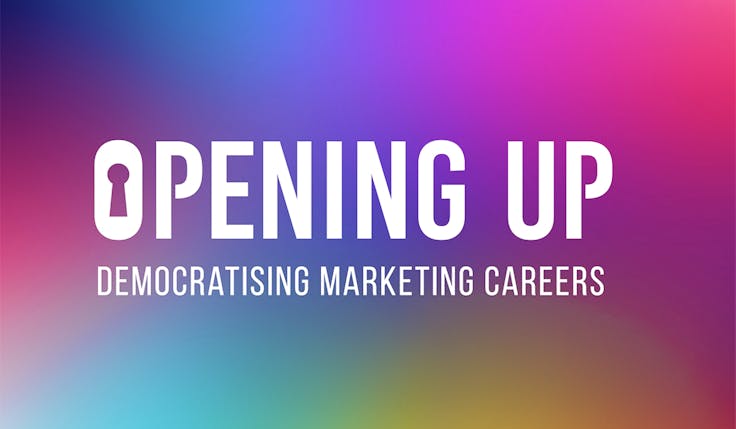
Workplace equality champion People Like Us (PLU) has issued the UK government with a “supersized” bill drawing attention to the gulf in wages caused by Britain’s ethnicity pay gap.
Annually, black, Asian and ethnic minorities are losing out on an estimated £3.2bn in wages due to the ethnicity pay gap, according to Resolution Foundation figures. In response, PLU’s new campaign is pushing to ensure there is no delay to the introduction of mandatory ethnicity pay gap reporting, deemed a “critical step” towards addressing structural inequalities in UK workplaces.
The ‘Britain’s Ethnicity Bill’ campaign from the award-winning not-for-profit, which champions ethnically diverse talent across the UK’s marketing, media, communications and creative sectors, aims to hold the UK government to its promise to introduce mandatory ethnicity pay gap reporting and implement the Equality (Race and Disability) Bill.
Working with independent creative agency Worth Your While, the outdoor campaign will see supersized receipts depicting the ethnicity bill appear across London as part of an installation running over the next two weeks.
With Britain’s Ethnicity Bill, we’re holding up the receipt – literally and figuratively – and showing what inequality really costs this country.
Darain Faraz, People Like Us
The creative is supported by a custom-built online receipt generator tool, which allows individuals to create a personalised receipt and add their name to Britain’s Ethnicity Bill, with social and PR activations running alongside. PLU describes the campaign as a “final effort” to ensure the Equality (Race and Disability) Bill proceeds.
“The ethnicity pay gap isn’t just a moral failure – it’s an economic one,” says People Like Us co-founder Darain Faraz.
“£3.2bn in lost earnings isn’t an abstract statistic, it’s real money that should be in people’s pockets, not written off year after year. With Britain’s Ethnicity Bill, we’re holding up the receipt – literally and figuratively – and showing what inequality really costs this country. This campaign is People Like Us’ way of making it impossible to ignore, because silence has a price too.”
The new campaign builds on PLU’s ‘Autocorrected Pay Gap’ campaign in 2023 and Cannes Lions winning ‘#NameTheBias’, which called for urgent systemic reform to tackle biased hiring practices impacting the earning potential of ethnic minority talent. Both campaigns pushed for a timeline for the introduction of mandatory ethnicity pay gap reporting, in the same way as currently exists with gender pay gap reporting.
New research from People Like Us and Scope finds 70% of UK workers support mandatory ethnicity pay gap reporting.
Brands urged to tackle ‘name bias’ harming ethnically diverse talent
“This research confirms what we’ve known for years – that people are tired of inequality being brushed under the carpet,” says PLU co-founder Sheeraz Gulsher.
“The public overwhelmingly backs mandatory pay gap reporting because transparency breeds trust, fairness, and progress. Ethnic minorities and disabled workers are being short-changed, not just in pay but in opportunity – and it’s costing this country billions. Reporting is not a silver bullet, but it’s the bare minimum. If the government is serious about tackling inequality, now is the moment to act. We can’t afford to wait any longer.”
Marketing Week’s 2025 Career & Salary Survey uncovered an ethnicity pay gap for full-time workers of 13.3%, up sharply from 8.5% in 2024. Indeed, marketing’s ethnicity pay gap is now at its highest level since 2022.
According to research carried out last year by PLU in partnership with Censuswide, working in a business with a high ethnicity pay gap would lead a third (33%) of ethnically diverse talent to worry about their career progression and consider looking for roles elsewhere, compared to 16% of white employees.
The majority (66%) of ethnic minority professionals surveyed would either discount roles with companies with high ethnicity pay gaps or would only consider them if there were other compelling reasons. In fact, the research finds more than a quarter (26%) of potential employees would not be willing to work for a company with a high ethnicity pay gap, regardless of ethnicity.
From a consumer perspective, 40.5% of ethnically diverse working professionals expressed reluctance in buying from companies with large ethnicity pay gaps.
 Marketing Week’s Opening Up campaign is pushing for the democratisation of marketing careers. Read all the articles from the series so far here.
Marketing Week’s Opening Up campaign is pushing for the democratisation of marketing careers. Read all the articles from the series so far here.


